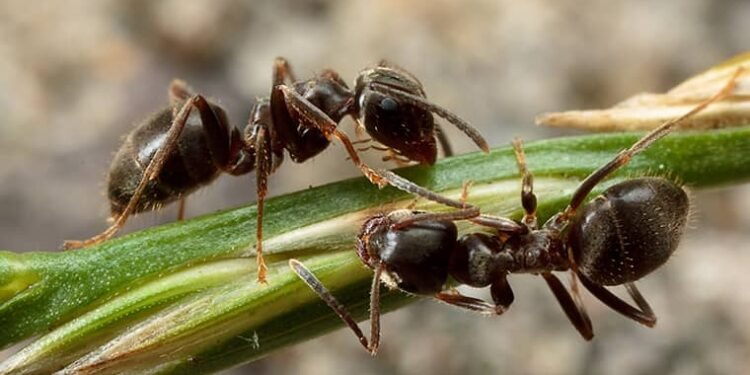Do ants spread disease? Ants, those tiny creatures that often find their way into our homes, might not be the first thing that comes to mind when you think of disease carriers. However, these industrious insects can pose health risks in various ways. This article will explore how ants can cause cross-contamination, transport food-borne illnesses, and even lead to infections or allergic reactions. Understanding these potential health hazards is essential for taking appropriate measures to prevent ant infestations in your home.
The Sneaky Intruders: Ant Species in Connecticut
Connecticut is home to a variety of ant species, including carpenter ants, pavement ants, and sugar ants. These small invaders can easily infiltrate your home, and just a few visible ants often indicate a much larger hidden colony. It’s crucial to address ant infestations promptly to prevent the situation from escalating. Delaying action can lead to a significant increase in the ant population, making extermination more challenging.
Do Ants Spread Disease?
Cross-Contamination: Ants and Your Health
Once inside your home, ants embark on a quest for food and water sources, exploring areas like your kitchen sink, trash can, and even your toilet. Despite your best cleaning efforts, these places may still harbor potentially harmful bacteria. As ants move from one location to another, they inadvertently pick up and transport these bacteria, leading to cross-contamination. For example, an ant that visits your toilet can subsequently contaminate your bedside table, posing a risk to your health.
Eradicating ant infestations within your home is the only effective way to prevent cross-contamination and protect your family’s health.
Food-Borne Illnesses: The Hidden Threat
In addition to the bacteria already present in your home, ants can introduce various food-borne diseases such as Shigella, clostridium, E. coli, and various fungi. If ants gain access to your food, they can quickly transmit these bacteria. Even when food is securely stored, the risk of cross-contamination remains. Individuals who are immunosuppressed, children, and the elderly are at a greater risk of falling ill due to exposure to these bacteria.
To mitigate the risk of food contamination, it is essential to address ant infestations promptly and store food securely.
Ant Bites: More Than Just an Annoyance
Ant bites are not just painful; they can also lead to infections or allergic reactions. When ants bite, they deposit venom that can cause severe itching, burning, and swelling, especially in individuals who are sensitive to ant venom. If the skin is broken due to swelling, the bite victim may become susceptible to skin infections like cellulitis.
Fire ant stings, in particular, can trigger strong adverse reactions, even in those who are not usually sensitive to ant venom. These stings result in painful, itchy lesions that can break the skin. Multiple fire ant stings can lead to anaphylactic shock, a potentially life-threatening condition. While indoor fire ant infestations are relatively rare, individuals planning outdoor activities like hiking or camping in recreational areas should carry a first-aid kit containing sterile bandages and antihistamines to manage ant-related allergic reactions.
Conclusion: Do Ants Spread Disease?
While ants may not spread disease in the same way as mosquitoes or ticks, they can still pose significant health risks. Cross-contamination, transport of food-borne illnesses, and painful ant bites are all potential consequences of ant infestations in your home. To save your health and your loved ones, acting swiftly when dealing with ant infestations is essential. By taking proactive measures to prevent ants from infiltrating your home and promptly addressing infestations, you can significantly reduce the health risks of these tiny but potentially troublesome insects.




